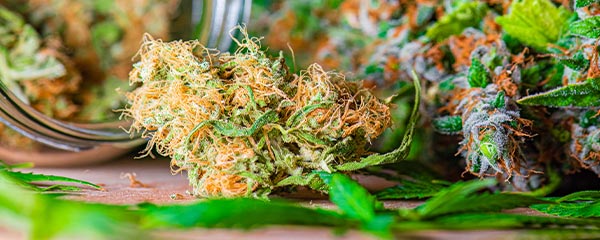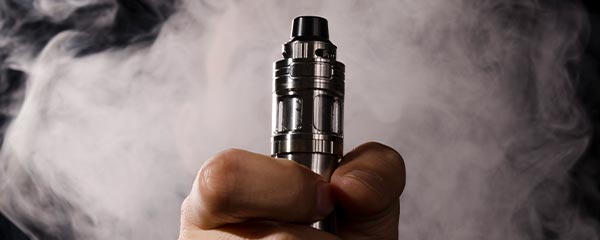Gallup has been asking Americans about their attitudes toward cigarettes and alcohol since the 1930s and 1940s, and, in more recent decades, has added similar questions about marijuana. One purpose of these continuing surveys is to update estimates of these substances' frequency of use.
- Alcohol is by far the most used of the three. About 45% of Americans have had an alcoholic drink within the past week, while another 23% say they use it occasionally. A third are "total abstainers."
Alcohol use has remained relatively constant over the years. The average percentage of Americans who have said they are drinkers since 1939 is 63%, quite close to Gallup's most recent reading of 67%.
- Some 16% of Americans say they currently smoke marijuana, while a total of 48% say they have tried it at some point in their lifetime.
Marijuana use (based on self-reports) has increased dramatically over the past half-century. Only 4% said they had ever tried marijuana in 1969, when the question was first asked. That's now 48%. Seven percent of Americans said they currently smoke marijuana in 2013, compared with the 16% measured this summer.
- Cigarette smoking incidence has dropped steadily over the decades, from a high of 45% in the mid-1950s.
Today, a new low of 11% of American adults report being smokers. Roughly three in 10 nonsmokers say they used to smoke.
In sum, American adults are significantly more likely to use alcohol than either marijuana or cigarettes. And while alcohol consumption has remained relatively constant over the decades, cigarette use is now less than a fourth of what it was in the 1950s. Americans' regular use of marijuana is modestly higher than cigarettes at this point, but the trend over recent decades in marijuana use is upward.
Explanations for Use and Nonuse of Alcohol, Cigarettes and Marijuana
The ingredients in alcohol, tobacco, and marijuana stimulate specific biological responses that produce positive, pleasureful effects for the user.
Given these pleasurable outcomes, one might ask why use of the three substances is not higher. The answer is bound up with the fact of life that the positive reinforcements provided by alcohol, tobacco and marijuana come with significant downsides. These relate primarily to the substance's impact on the user's health and the negative impact that individuals using the substance can have on others in society. Thus, over the centuries, the use of cigarettes, alcohol and marijuana has become intertwined with a complex tapestry of cultural and political disapprobation and constraints.
Americans are to some degree cognizant of the negative consequences of using the three substances.
- Gallup research in 2019 showed that 83% of Americans believed smoking is "very harmful" to adults who smoke, and another 14% said it is "somewhat harmful," meaning that recognition of smoking's downside is almost universal. When Gallup last asked about it in 2013, over nine in 10 adults said smoking caused cancer. Ninety-one percent of smokers interviewed in 2015 said they wish they had never started smoking. Seven in 10 adult smokers interviewed by Gallup over the past five years said they wish they could stop.
- Americans' views of the impact of marijuana are less negative. As my colleague Lydia Saad recently reviewed, a little more than half of Americans say marijuana's effect on those who use it is positive. And the public is split down the middle in their views of its effect on society -- half positive and half negative.
- Americans' views of the effects of alcohol are quite negative. Gallup's Megan Brenan recently reported that slightly more than seven in 10 Americans say alcohol's effect on those who use it is negative. And 75% say the effect of alcohol on society at large is negative.
The Future for Cigarettes and Marijuana
Smoking cigarettes is clearly on the decline and is most likely to become even more of a rarity in the years ahead. This reflects both public awareness of its negative effects and continuing government efforts at all levels to curtail its use. Smoking remains legal in general but is prohibited in many public places, offices, modes of transportation and in private places across the U.S. Each pack of cigarettes carries draconian warning messages about their harmful effects.
The future of marijuana use is, I would say, somewhat up in the air, but the probability is higher that its use will increase rather than decrease. Marijuana has until recently been illegal in most jurisdictions, and it remains illegal for recreational use in over half of U.S. states. But the trend is toward increased legalization, and this is supported by the attitudes of the significant majority of the American public. And, as noted, the majority of Americans are not convinced that marijuana use is harmful either for its users or for society. Those who have tried marijuana are particularly likely to say marijuana has positive effects. (In contrast, it should be noted, some authorities argue that marijuana is quite dangerous, particularly for young adults, and it is possible that attitudes toward its use could change if focus on the downsides of marijuana increases in the years ahead.)
Whither Alcohol?
The future of alcohol drinking presents the most fascinating sociological case study out of the three substances. Alcohol use has been remarkably steady over the past 80 years (the time during which Gallup has measured it). In fact, alcohol has been widely used in the U.S. since the nation's founding. Its use continues to be intertwined with many aspects of American culture, including social and -- in some instances -- religious rituals. Alcohol is also a major contributor to the nation's economy. If the best predictor of future behavior is past behavior, then the best guess would be to predict no significant change in alcohol use going forward.
Despite its widespread use, alcohol's downsides have been recognized in the U.S. for centuries. This awareness reached a climax over a hundred years ago, when the 18th Amendment to the U.S. Constitution -- passed by Congress and ratified by 46 of the 48 states -- banned the manufacture, transportation and sale of alcohol. While the resulting Prohibition may have actually lowered the consumption of alcohol as intended, it had numerous other unanticipated negative consequences and was repealed some 13 years after it took effect.
Prohibition may have failed, but Americans to this day perceive that alcohol has negative effects on those who drink it and on society in general. Those who use alcohol are somewhat less likely than those who don't to say its effects are negative -- as we might expect. But the bifurcation in attitudes between drinkers and nondrinkers is not great. Almost two-thirds of those who use alcohol still say its effect is negative for those who use it (whether they are considering themselves or "others" who drink too much isn't clear), while 71% of drinkers say alcohol has a negative effect on society. Even among the group of those who have had five or more drinks in the previous seven days (regular drinkers), about six in 10 say drinking is bad for the person doing the drinking, and 64% say it's bad for society. Plus, three in 10 Americans say alcohol has been a cause of trouble in their family.
Broadly speaking, we have a situation in which Americans continue to drink alcohol while recognizing that its use can have negative consequences.
These views on the effects of drinking presumably take into account the idea advanced in recent years that moderate drinking could have positive effects on the drinker -- although that conclusion is disputed by some recent reviews of medical evidence. In 2018, a Gallup poll showed that just 16% of Americans said "drinking in moderation -- that is, one or two drinks a day" was good for one's health, while 55% said it had no effect, and 28% said it was bad for health.
We do know that despite the large percentages of Americans who say alcohol has negative effects on drinkers and on society, it doesn't appear to be a moral issue. A Gallup poll in 2018 found that only 19% said drinking alcohol is morally unacceptable.
Bottom Line
Americans recognize the harmful effects of smoking cigarettes, and smoking has declined significantly over the past half-century and can be expected to continue on this trajectory.
Americans are more ambivalent about the effects of smoking marijuana, and its future use by Americans will depend partly on changes in recognition of its potential harms and partly on the continuing shifts in its legality in states across the union.
The majority of Americans recognize that alcohol consumption has negative effects on both the user and society more generally. But unlike the case with smoking, there are no signs that these attitudes have resulted in a decrease in alcohol use. Why people use alcohol and have continued to use it while recognizing its downsides are complex questions that have engendered a great deal of medical and psychological research over the years. Clearly the social and personal benefits alcohol provides, along with its historical entrenchment in American culture, tend to outweigh consideration of its social and personal costs.
What could change the pattern of alcohol use going forward? Americans are not likely to support any type of ban on alcohol (a 2014 CNN poll showed only 18% of Americans said alcohol should be made illegal in this country), so if alcohol use diminishes in the future, it will most likely result from factors like those that reduced the incidence of smoking. These include an increased emphasis on its personal and social costs, along with, as recommended by the Centers for Disease Control and Prevention, such steps as increasing taxes on alcohol, reducing the number of places where alcohol is sold, and reducing the hours of sale and general availability of alcohol.




